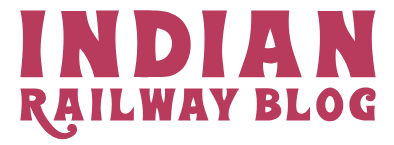The Indian Railways has recently bestowed a significant financial boost upon its dedicated workforce. A remarkable bonus of ₹2,028.57 crore has been distributed amongst the diligent railway staff, an initiative that has been met with enthusiasm and gratitude. However, even amid this celebratory moment, labor unions are pressing on another front, calling for revisions in pay scales that they argue are long overdue. This development is pivotal in the evolving dynamic between railway employees and management, highlighting both achievements and ongoing challenges.
A Generous Bonus for the Railway Workforce
The Indian Railways, one of the world’s largest employers, has managed to distribute impressive bonuses to its vast network of employees across the nation. This distribution, aimed at acknowledging the relentless efforts and commitment of railway staff, totals a whopping ₹2,028.57 crore. The bonus not only serves as an incentive but also recognizes the essential role these employees play in the seamless operation of India’s rail system.
Breakdown of the Bonus
- Each eligible employee receives a bonus in line with the Pay Commission recommendations.
- The bonus distribution is consistent with annual practice but has seen an enhancement this year.
- This initiative aims to motivate employees and uplift morale across various divisions.
The distribution of bonuses is not merely a financial transaction but a strategic move designed to foster goodwill and enhance productivity within the workforce. The public appreciation and reward of employees is a step towards strengthening the workforce’s commitment.
Unions Demand Pay Scale Revisions
Despite the financial incentives provided through bonuses, unions representing railway employees have escalated their demands, focusing on the need for permanent pay scale revisions. According to these labor unions, the current pay scales do not sufficiently reflect the rising cost of living and the significant contributions of railway workers to the economy.
Arguments for Pay Scale Changes
- The existing pay structure fails to match inflation rates, shrinking real income.
- Wages need adjustment to reflect the demanding nature of the job and extended work hours.
- An increase in pay scales could potentially reduce employee turnover, attracting and retaining skilled workers.
The unions believe that substantial changes in the pay structure are necessary not only for fairness but also for maintaining employee satisfaction and efficiency. They argue that bonuses, while generous, are not a substitute for a reasonable, sustainable salary structure that meets daily financial needs.
The Current Landscape and Future Prospects
The dialogue between railway authorities and labor unions concerning employee compensation is ongoing. Both parties are navigating through complex economic factors and operational needs to find a balanced solution. The Indian Railways recognizes the importance of its workforce and is tasked with addressing these demands strategically.
Key Challenges
- Balancing budget constraints with fair wage practices.
- Implementing pay scale revisions without compromising on operational efficiency.
- Managing expectations of a diverse workforce spread over a vast geographical area.
As negotiations continue, there remains optimism that a mutually agreeable solution will emerge, one that respects the contribution of railway employees while aligning with organizational capabilities and visions for the future.
Conclusion
The recent bonus distribution by the Indian Railways serves as a recognition of the hard work and dedication demonstrated by its employees. While this gesture has been warmly received, it also brings to light the broader conversation about fair compensation in line with industry standards and economic realities.
As the discussion on pay scales advances, the outcome will likely set a precedent for labor negotiations across other sectors. The balance struck here could prove crucial in shaping not only future compensation frameworks but also in defining the employer-employee relationship within India’s railway system.
Ultimately, achieving a fair, equitable pay structure alongside incentivizing initiatives like bonuses could profoundly impact employee satisfaction, retention, and productivity, securing the growth and stability of this critical sector.
“`





